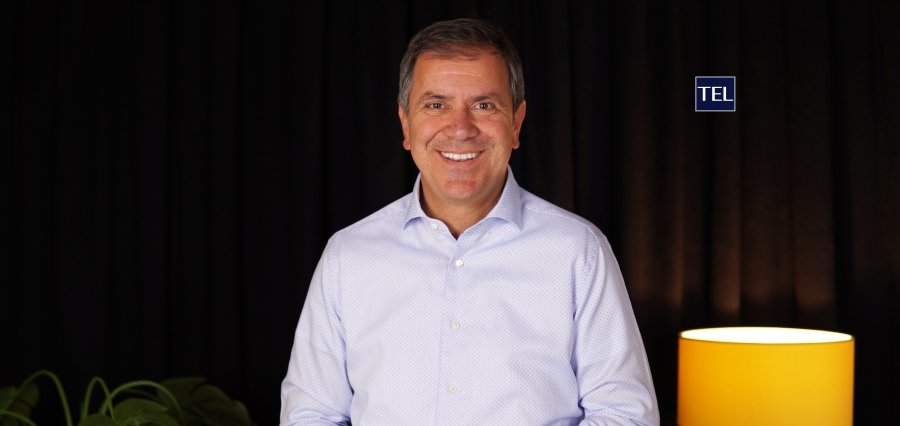A business leader’s success is rooted in empowering individuals to realize their full potential. Their leadership approach centers on inspiring people to tap into both internal and external resources that are key to their growth and success. Rather than offering direct solutions, it provides guidance that encourages leaders to find the best answers for their unique challenges.
Unlike a traditional consultant who prescribes solutions, this method clarifies the leader’s vision. By leveraging developmental mentoring and business and executive coaching tools, it fosters growth, helping leaders navigate the complexities of a constantly advancing world. This approach boosts individual effectiveness and drives overall organizational performance.
With a focus on managing risks and building confidence, Dr. Riza KADILAR, the Founder & Mentor at K Ventures, helps businesses navigate obstacles and cultivate strong relationships with stakeholders. His multifaceted strategy prioritizes long-term success, emphasizing the seamless integration of financial planning, talent acquisition and human resource development. Recognizing that growth relies on capital and human potential, he helps businesses build sustainable infrastructures that support scalable growth.
One of his core strategies is enhancing workforce scalability through leadership programs, mentorship networks and advanced training, ensuring organizations are equipped with the talent needed to thrive in global markets. His expertise also extends to solving challenges such as cross-border investments, regulatory complexities and labour shortages, offering innovative solutions that unlock new growth opportunities.
He develops forward-looking financial models that prioritize sustainability and inclusion. Companies then can generate profit while making positive contributions to society. He promotes social responsibility by encouraging entrepreneurs and investors to look at potential areas such as social impact investing and community-driven growth initiatives. His legacy blends financial success with societal betterment, leading the way to a brighter and more inclusive future.
The Power of Resilience in Career Development
The process began with the global pandemic. Dr. Riza KADILAR had already relocated his family to the Netherlands in 2017 and was continuing his career in banking as the country CEO of a major international investment bank. His tenure in this role continued until the end of the COVID-19 pandemic.
As travel became increasingly difficult and the future of business development became uncertain, the bank decided to close several of its international offices. This presented Dr. Riza KADILAR with a valuable opportunity to settle down with his family and pursue a second career, leveraging the wealth of experience he had accumulated over the years.
The driving force behind this new phase in Dr. Riza’s life was his commitment to effecting positive change and his passion for creating a better world. He was motivated to connect various elements to forge new ventures that could bring this vision to fruition.
His curiosity about whether he could succeed in a new career, despite Dr. Harari’s assertion that embarking on a new career journey after the age of 50 is challenging, fueled his determination. Rather than perceiving the growing business environment as a setback, he embraced the challenge of building something even more impactful.
Strategies for Leading Diverse Teams Effectively
The key to effective leadership, according to Dr. Riza KADILAR, lies in developing one’s capacity for inclusion. He recognizes that conscious and unconscious biases, implicit associations, thought patterns and privileges—such as those related to education, social status, family background, living and business environments and physical conditions—can all serve as barriers to cultivating an inclusive leadership style.
He considers himself fortunate to have discovered these factors early in his banking career, particularly when he was leading the bank’s department that dealt with multinational companies.
He believes that clients are the best teachers. Through exposure to a variety of personal styles and cultural diversity, he quickly realized that the diverse perspectives within his teams provided a significant competitive advantage. This diversity not only enhanced team performance but also contributed to increased resilience and more effective risk mitigation.
He notes that simply recognizing the importance of diversity is not enough. It is crucial to increase emotional awareness and be able to navigate challenges, even when they are dysfunctional.
To develop this, Dr. Riza KADILAR applied coaching techniques to himself while continuously creating reflective spaces to learn from his experiences. Over time, this practice enabled him to develop a leadership style that became increasingly inclusive and adaptable to different contexts and cultures.
Creating Meaningful Work Experiences for Employees
Dr. Riza KADILAR has long recognized human capital as key to organizational success, especially as automation reduced the need for low-value, repetitive jobs. Today, the focus is on motivating and developing this vital resource. He emphasizes that increased autonomy boosts employee motivation and, in many industries, finding meaning in one’s work is a more sustainable success driver than profit alone.
He stresses the importance of developing caring, trusting relationships among colleagues to create a positive work climate, while toxic cultures can severely impact business outcomes. He highlights that success in today’s business world relies on skills like listening, communication, adaptability, problem-solving and empathy.
Combining Industry Knowledge with Innovation
Throughout his career, Dr. Riza KADILAR deliberately distanced himself from routine responsibilities, even at the risk of making himself redundant. He recognized that focusing too much on daily tasks could result in tunnel vision, limiting broader thinking. His curiosity and rapid learning were further fueled by sharing insights with his professional network. He successfully brought together various resources from different parties, facilitating collaborations that created value. He believes thought leadership can significantly impact both society and organizations.
He asserts that inspiring societal change comes from staying aware of developments in unrelated fields. He emphasizes the importance of combining a broad, “helicopter” view with a strong grounding in the industry and societal realities. While sharing wisdom was once sufficient for thought leaders, in today’s world—shaped by emerging technologies—the true value lies in the ability to inspire. He stresses that inspiring requires specific techniques and this topic, “How to inspire?” is a core focus of his mentoring teachings.
Embracing Holistic Thinking in Leadership
Dr. Riza KADILAR highlights that one of the most significant impacts of digital transformation is its effect on leadership styles. Historically, many leadership approaches were grounded in Cartesian, linear thinking. However, with the rise of technology, there has been a shift toward more holistic and network-oriented thinking. This shift has had a profound influence on both mentoring and leadership practices.
He observes that previous systems were often designed with the assumption that humans were the “bug” in the system, leading to management styles focused on control. These systems were built around the concept of using carrot-and-stick tactics to motivate employees. However, the growing digital environment calls for a new, more integrated approach to leadership—one that embraces collaboration, adaptability and empowerment.
Building Relationships with Industry Thought Leaders
Dr. Riza KADILAR believes that being deeply embedded in the ecosystem is the best strategy for staying ahead in growing sectors. To stay connected, he made the strategic decision to relocate his family to a small town within Food Valley in the Netherlands. His daughter is currently completing her master’s degree at Wageningen University and Research and Dr. Riza KADILAR also has an office on the university’s campus. Some of the agrotech companies in which he has invested have established a presence in the area as well.
He emphasizes that being connected to the ecosystem is critical for success. In addition to this, he acknowledges that maintaining links with thought leaders and think tanks in the domain significantly enhances his ability to stay at the forefront of industry developments.
Creating a Lasting Legacy as a Leader
Dr. Riza KADILAR is a strong proponent of the leadership paradigm of being a “good ancestor.” In his book, he dedicates a chapter to exploring the question, “What does the world of tomorrow expect from your leadership today?” This core paradigm drives his approach to leadership, with a focus on leaving a legacy that contributes to creating “good times for all stakeholders.”
He observes that, for many young achievers, performance is often seen as the primary measure of success. However, over time, he has come to realize that the price we pay for the life we lead is equally important. He believes that by living in harmony and maintaining a balance between performance and the costs associated with success, individuals can create a more harmonious and sustainable life. He hopes that his legacy will reflect this balanced approach, one that emphasizes both achievement and the well-being of all those involved.
The Intersection of Technology and Philosophy in Leadership
Dr. Riza KADILAR views impact as a complex concept, acknowledging that most solutions are shaped by assumptions and perspectives, with topics like protein shift, energy transition and the circular economy grounded in technological and philosophical assumptions. He believes life often revolves around competing alternative solutions.
For aspiring leaders, he advises adopting an inclusive approach. He emphasizes the importance of creating environments where all stakeholders, even those not present, feel seen, heard, and respected. He suggests leaders first recognize their biases and privileges, as doing so will enable them to make decisions that generate truly inclusive, lasting impacts on society and organizations.
Enhancing Quality of Life with New Technologies
Dr. Riza KADILAR envisions his role in promoting innovation and positive change through investments in new scaleups and his engagements in speaking, mentoring and coaching. Living in a city renowned for life sciences, his investments are focused on leveraging new technologies to enhance the quality of life in the most sustainable manner possible.
In addition to his investments, Dr. Riza’s keynote speeches and one-on-one coaching and mentoring sessions are designed to inspire others, offering fresh perspectives that enhance awareness and generate more options for making better decisions and finding effective solutions. Through these various channels, he aims to contribute to the advancement of innovation and positive societal change.




